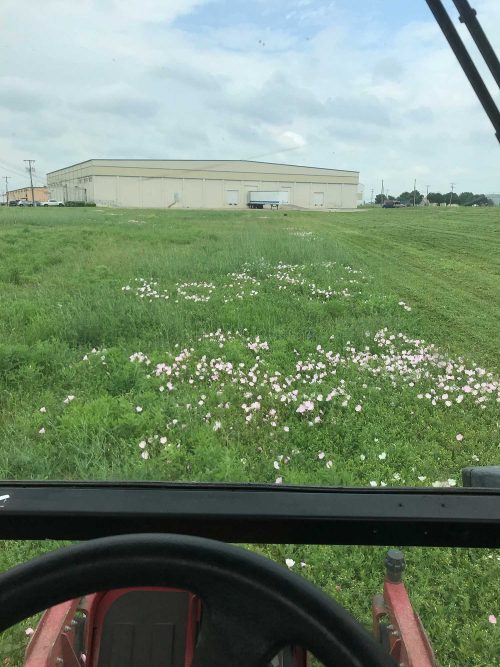
To borrow from Shakespeare, mowing pasture grass, or not mowing pasture grass, that is the question. Tis nobler to suffer . . . well, you get the point. Today we will discuss the pros and cons of mowing large fields, from our viewpoint, Keith’s Tractor Mowing, serving the Greater Fort Worth area with professional acreage mowing. Call us the next time the mowing job is too big for you to safely do yourself, or the next time you don’t have the time to take on the big mowing job.
Back to Shakespeare we go!
The pros of mowing pasture grass
The three main benefits of mowing pasture grass are:
- Weed management
- Enhancing foraging quality
- Reduce grazing patterns
Weed management
Regular mowing, by a pasture mowing service, or by yourself, will prevent weeds from establishing before their seed pods have a chance to drop seeds and germinate. Managing the spread of weeds is a major step in making sure your livestock, especially horses, only eat what is good for them.
Enhancing foraging quality
A grass plant that is growing is constantly producing nutrients which are beneficial to livestock. Shorter grass is constantly in a growing and vegetative state. Pasture shredding also makes the grass more digestible and palatable, both good qualities for the health of your livestock.
Reduce grazing patterns
Livestock tend to follow patterns when grazing. Certain areas are grazed often at first, and longer grass areas are used for dumping waste. The dumping of waste produces dead areas in the pasture. By mowing, certain areas are not singled out for the waste droppage, and a healthier pasture results from the mowing.
The cons of mowing pasture grass
There are, too be sure, negatives associated with mowing pasture grass. There is a risk that animals will eat molded grass which has been mowed and then left on the ground of the pasture. This risk can be eliminated by harrowing, or spreading the mowed grass evenly throughout the pasture. The other major risk is that animals, especially horses, can choke if they ingest large mouthfuls of mowed grass. This, too, can be eliminated by the harrowing procedure.
The answer to Shakespeare’s question is . . .
The bottom line is this: pastures benefit from regular mowings. Lot mowing should be on a scheduled basis to prevent grasses from becoming too long and thus dropping seedheads or allowing for weed production. In addition, harrowing should, in our opinion, immediately follow any mowing. This way a healthy pasture will be maintained, and the grazing animals will not run the risk of choking or consuming molded grass.
In addition, as a side note, pasture rotation is always a wise practice. Too much grazing in one area can do damage, over the long run, to any pasture. Moving grazing animals to a different pasture for a certain period of time is always a sound practice.
A final word about Keith’s Tractor Mowing
You don’t stay in business for as long as Keith’s Tractor Mowing has without being professional, courteous, and trustworthy. Those qualities are the hallmarks of Keith’s Tractor Mowing. You can rest assured that a phone call to Keith’s will produce the very best in commercial pasture mowing. Remember, when the job is too large, or too difficult, for you to handle, the very first call should be to Keith’s Tractor Mowing of Fort Worth.